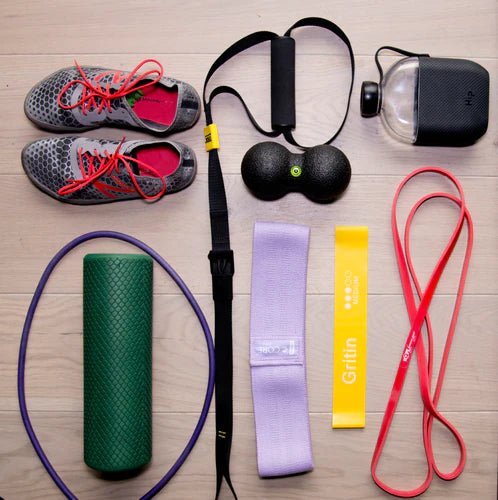Mo Gawdat is a Ted talker and a best-selling author on the subject of happiness. He has partnered with bath, body and self care brand Rituals to help them reinforce their mission which is to help people slow down and take a breath, especially in these difficult times, but essentially help them how to be happy.
Mo Gawdat wasn’t always a happiness speaker or a happiness author. He started out his career at IBM before moving to Microsoft and Google where he became Chief Business Officer of Google X which he said was ‘Probably the most innovative place on the planet.” With a beautiful wife and two children he felt he should have everything, but yet he says now he still felt depressed.
But then tragically he experienced the loss of his 21 year old son when a routine operation went horribly wrong. As unbelievably difficult as this was, Mo says ‘When you suffer this kind of loss, for many, it’s a defining moment which can lead us to avoid the world and into decay. But for others, like me, I found an opportunity.”

Mo’s daughter shared with him a conversation she and his son Ali had had a few weeks before his death. “Ali told his sister that he dreamt he was everywhere and part of everyone” he says. Mo saw this not just as a sign to create something good out of something horrific, but he also saw it as a goal. He ended up writing his international bestselling book Solve for Happy and gave himself a target for its’ message to reach 10 million people. But when Channel 4 did an interview with him that went viral, it reached 87 million viewers in just 4 days. Mo and his team then upped the target to make 1 billion people happy which led to Mo travelling the world to spread the word.

As part of his collaboration with Rituals (for which he is unpaid), Mo explains here the fundamentals of his beliefs in happiness.
Don’t mistake happiness for fun
“We have mistakenly understood happiness as fun,” says Mo. “Happiness is peacefulness, a calm inside you when you are ok with life as it is. When you have that feeling in you, you are able to perform better.” Mo goes on to explain that a study at Stanford university shows that people who are happy are in general 12% more happy in whatever they do.
Why is happiness important?
“People care so much about being healthy, and the reason for that is because healthy is the optimum mode we can perform in life,” Mo explains. “We don’t want to be unhealthy as it’s not an optimum way of performing or surviving . Similarly happiness is an optimum way of performing in life. People who are happy are proven to be more productive, they are more loved by their colleagues and clients and more engaged in what they do and report less absence.”
We need a happiness intervention
“People who aren’t happy are losing their lives – depression is at an all-time high, as are suicide rates” says Mo. ” Until 20 to 30 years ago it was very rare for a woman to take her own life. Today it is 10-15 times higher than that.”
Mo himself understands what it feels like to suffer depression through his own battles, “When I was in my late 20’s I really struggled ” he says. As an engineer and a mathematician and a self-confessed control freak, Mo admits he was probably overly critical with himself ” I think all the time, and I criticised myself all the time which made me constantly unhappy. I attempted to find a predictable path to happy.”
On the outside it would appear that Mo had it all – a beautiful wife, great wealth, two beautiful children – and therefore he figured there must be something wrong with the code of his brain. After his so died and feeling he needed to ‘debug the code in his head’ he set out on a mission to try to understand what causes unhappiness, to discover “What bugs where in my code” he says.

Happiness cannot be attained
The first eye-opening statement Mo discovered was very simple, that happiness is never going to be bought. “All the money, vacations, clothes, fancy gadgets and cars – none of it would make me happy because happiness cannot be attained,” he says. He goes on to explain that if you look at babies who are content (when they are fed, warm, loved, clean) you realise that we are born happy. “Happiness doesn’t come to us, it is within us, it is our default setting,” he says, “Babies don’t ask for X Box’s to be happy, or someone to like their butt shot on Instagram. Looking for reasons to be happy is not the answer, but looking for reasons that make us unhappy and removing them is.”
The happy list
Mo describes a very simple exercise that makes people really think about what makes them happy, something he says we don’t do enough of. It involves taking a piece of paper and finishing the sentence ‘I feel happy when…..’ five times. This he explains, could be as simple as having a good cup of coffee, a hug, or listening to music.
What Mo saw (and you will see if you do it at home) was that when you look at your list, you realise that most of the items are very simple. He goes on to suggest that it is a great practise to invite these things into your life on a daily or weekly basis.
The other observation he found was that “You won’t find all the things that society lied to you about on that list.” By this, he means that you won’t find “I feel happy when I’ve bought a Ferrari” on the list. “As a matter of fact,” he says “Very few people feel happy when they’ve bought a Ferrari for more than 3 minutes – most people who buy a Ferrari get inside and say ‘When am I going to get my Lambhorgini.'”
Mo also says that no one ever writes ‘I will feel happy when I win the Nobel Prize.’ ” In fact when you ask those that won the Nobel Prize they say they felt happier when they achieved the breakthrough that lead to the Nobel prize,” he says. The prize itself wasn’t what made them happy.
Comparison is the thief of joy
Mo also discovered that every moment in your lives we have ever felt unhappywasn’t because of what was happening in our lives but because of a comparison between your life and how you want your life to be. He gives an example about his experience of rain in the UK. “Rain doesn’t make us happy or unhappy,” he says “The reason we feel unhappy about rain is because it misses our expectations of how life should behave.”
The happiness equation
Mo realised that if he could find the reasons behind unhappiness he could list them down, or even better, as an engineer he could find an equation to solve it. He went about his mission as he would an engineering test. “When you get a system that gets results that seem unpredictable, you plot the results on the chart and attempt to find a trend line.” Which is exactly what he did. This is the equation he came up with:
Your happiness = to or is > the difference between the events of your life and your expectation of how life should behave
(Your happiness equals or is greater than the difference between the events of your life and your expectation of how life should behave) Translated: If the event surpasses expectations you will be happy, if it misses expectations then you won’t.
Fun is a painkiller
“Happiness is this peaceful feeling,” says Mo, “And yet we confuse it with going to the pub, dancing at a party or jumping out of a plane. We mix it up with a target – something we aspire to achieve. Fun is not happiness, pleasure is not happiness they are weapons of mass distraction” he warns. “They are things we have replaced happiness with. These are things that numb our brains long enough that we don’t solve the happiness equation. Fun never lasts but we use it as a painkiller, and whilst it’s a dose of numbness it doesn’t fix the problem.”
Side note: Mo also explains that there is nothing wrong with fun if you are already happy – it’s like a supplement or vitamin he says that can boost our wellbeing.
So how do we solve the happiness problem?
We have to first understand what unhappiness is. “it’s important to understand that unhappiness is a survival mechanism,” he explains, “Your brain is responsible for analysing the world around it and warning you if there is something that threatens your survival.” Our brains can create all sort of stories that will make us unhappy, “These cause pain emotionally or physically,” he says ,”They tell us things aren’t perfect and that you may want to take action. I’m not saying we shouldn’t feel the pain as life can be difficult, but when we play it over and over like the ‘Netflix of Unhappiness’ then that’s when it’s really damaging,” he says.
“Unhappiness in that case is a choice. It is a choice for me to play over the over the loss of my son which makes me suffer, but in reality I can choose to play over and over the birth of my son and the 21 beautiful years I was blessed with.”
Remember that the good in life naturally outweighs the bad
If you are struggling with negativity right now (and let’s face it who isn’t?) then Mo explains that, when you look at life, moments when everything is ok are many many more than when things are aren’t. “If you were born in 1900” for example “Then by 1914, 22 million people would have died in WW1. By 1922 50 million people would have died of the Spanish flu. By the end of WWII, 75 million people would have died, and by 1950 300 million people would have died by Smallpox. The truth is when you think about it we have been blessed in life.”
Mo has collaborated with www.rituals.com to set up a two week happiness challenge with tips and exercises to grow your happiness muscle. Until 19th September.
If you like this article you may like to read about How to Hack your own Motivation here
.



